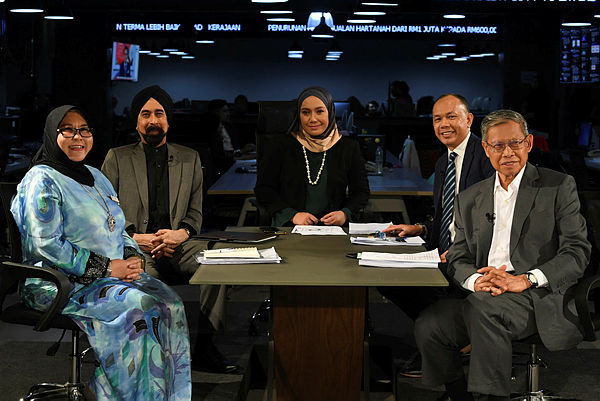KUALA LUMPUR: The 2020 Budget tabled today is a wide-ranging and detailed budget aimed at pushing growth further in the challenging economic environment, said Malaysian Institute of Certified Public Accountants (Micpa) president Dr Veerinderjeet Singh.
He said the budget focused on employment as well as digitalisation to boost productivity further.
“From the tax perspective, we can see incentives that revolve on pushing local consumption and boosting the electrical and electronics (E&E) sector as well as small and medium enterprises (SMEs),” he told Bernama.
The wider income tax net for high-income earners would provide the government with extra income on the side while boosting the local economy, he said, adding that the government’s plan to implement a Tax Identification Number (TIN) initiative in 2021 was a positive reform on the tax system.
Beginning January 2021, all Malaysians above the age of 18 and corporate entities will be assigned a TIN and the engagement sessions to implement this initiative will start next year.
KPMG Malaysia tax head Tai Lai Kok said the proposal to provide customised packaged investment incentives to attract Fortune 500 companies and global unicorns would have raised a few eyebrows.
“In view of this, it will be interesting to see what plans the government will have to make this initiative a success. It will certainly be necessary to target and court these global giants like never before in order to secure positive results,” he said.
He added that the E&E sector was also in the limelight in the budget as it continued to receive tax exemptions, which would be welcomed by industry players as continuous capital investment and innovation were key to being able to compete in international markets.
Under the 2020 Budget, the government will also provide tax incentives to further promote high-value added activities in the E&E industry to transition into 5G digital economy and Industry 4.0.
There will be an income tax exemption of up to 10 years for E&E firms investing in selected knowledge-based services and a special investment tax allowance to encourage companies in the E&E sector that have exhausted the reinvestment allowance to further reinvest in the country.
Meanwhile, YYC Holdings Sdn Bhd chief executive officer Datin Yap Shin Siang welcomed the increase in the chargeable income subjected to tax for the SMEs from RM500,000 to RM600,000, which would provide tax savings of RM7,000.
“Companies with a paid-up capital of up to RM2.5 million and have annual sales of not more than RM50 million will be eligible for this tax treatment,” she noted.
Yap added that with the 50% matching grant of up to RM5,000 for SMEs was also viewed as an encouraging step for SMEs to adopt digitalisation in their operations.
“We believe this is a necessary incentive to encourage SME owners to invest in digitalisation, which would lead to more efficiency and cost savings in the long run for businesses,” she said. — Bernama













